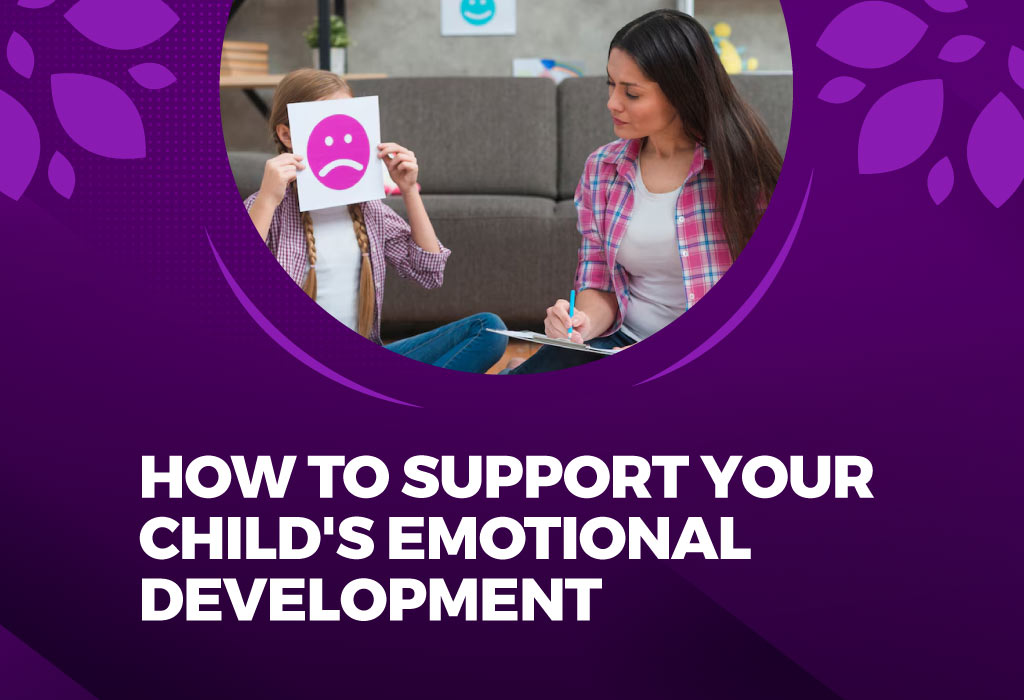How to Support Your Child’s Emotional Development

Among the primary features of good parenting is supporting the emotional development of a child. This forms the foundation for future well-being and success. Much of a child’s emotional development involves understanding, expressing, and managing feelings appropriate for healthy relationships and self-management—more generally, mental health. Following is a full guide on how to help your child with emotional development:
1. Be an Emotional Intelligence Role Model
This provides quite a strong example of emotional intelligence in daily life: show them how you handle your emotions, whether managing frustration, expressing joy, or handling stress. Use clear, age-appropriate language in describing your feelings and steps taken to address those emotions. For example, “I’m feeling frustrated because we’re running late. I’m going to take a deep breath to calm down.”
2. Encourage Open Communication
Create an atmosphere where your child will be comfortable sharing their feelings. Assist them in speaking their minds by asking open-ended questions that will encourage them to communicate their thoughts. Validate their feelings; belittle, or ignore them. For example, if he or she is afraid to start school, rather than reassuring them, “Don’t worry, it will be alright,” try, “I understand you are feeling very nervous. What do you think might make you feel this way?”
3. Teach Emotional Vocabulary
An extremely rich emotional vocabulary helps your child identify his feelings and tell them to others. Start with the basic ones like feeling happy, sad, angry, and scared, and then build from that to more complex ones like frustrated, excited, or disappointed. You can go through different emotions and their subtleties with stories, books, or situations from life. For example, after reading a story, you can discuss with your child how the characters might be feeling and why.
4. Build a Supportive Environment
An enabling environment means the children feel safe and understood. Therefore, ensure that all the needs of your child about love, security, and acceptance are catered for. Spend quality time together, listen carefully, and engage in activities that build trust and attachments. A consistent routine will also bring about stability and predictability, which are essential elements for children’s emotional security.
5. Problem-Solving Abilities
Try to encourage these. Teach your child how he can constructively approach problems and challenges. Instead of solving problems for him, give him a way to think about finding solutions. A Daycare in Vedapatti teaches how to approach problems and challenges constructively, making it a comfortable environment.
6. Develop Empathy
Provide opportunities that can enhance empathy—boosting activities and discussing how acts like this can make a person feel.
7. Set Realistic Expectations
Be sure to keep your expectations real for their emotional reactions and maturity level. Children at a different age have different emotional maturity levels and strengths about dealing with complex feelings. Be patient and give proper guidance according to the developmental period. For instance, toddlers are usually not able to share; older children often struggle through more complicated social situations.
8. Positive Self-Talk
Help your child develop self-esteem and resilience by teaching positive self-talk. Assist your child in substituting negative thoughts for constructive ones. For example, if your child says, “I’m not good at this,” help the child say instead, “Well, I am still learning, and with practice, I’ll be okay.” This way, you achieve a growth mindset that sustains emotional well-being.
9. Handling Behavior Problems
Whenever your child acts out, show empathy and follow up with positive guidance. Rather than dwelling on the behavior, address the emotions that drive the behavior. For example, if a child acts out, try to determine whether he or she feels overwhelmed or misunderstood and find a healthier way together in which to express such feelings.
10. Cultivate Strong Relations
Good relationships with family and friends provide support necessary for emotional growth. Encourage your child to develop and maintain friendships and also to participate in family activities that can strengthen family relationships. Positive social experiences in which children feel valued and understood will help their feelings, thus supporting the development of their emotional well-being.
11. Seek Professional Help if Necessary
If your child is experiencing a huge emotional shock or is struggling with some form of mental health problem, don’t be afraid to reach out for professional help. Therapists and counselors can offer professional services and give further tips in helping your child according to his needs. Earlier intervention does make a lot of difference in their future emotional development and well-being.
Conclusion
This is role-modeling, communication, showing understanding or empathy, and guiding a child through his emotional development. Keeping a nurturing environment for the child, such as choosing a daycare in Vedapatti that supports emotional skills, and dealing with problems sensitively will help him establish a good emotional base to which he can launch his life out of. Keep in mind that every child is special and will have his needs and pace.

